“If they stop, we’ll stop.” That’s what Donald Trump said in a discussion of the newly released Nuclear Posture Review at a briefing for state and local officials last week. Trump justified the expansion of the U.S. nuclear force to get “far ahead” of other countries who are modernizing and proliferating their arsenals.
Trump ignores America’s responsibility since the dawn of the atomic age to avoid Armageddon and maintain a commitment to arms control and nonproliferation. His words suggest willingness in both the administration and Congress to risk key nuclear treaties, like the 1987 Intermediate-Range Nuclear Forces (INF) Treaty and 2010 New Strategic Arms Reduction (New START) Treaty, for the sake of muscle-flexing and displays of military might.
This trend is misguided, and ruinous. Without concerted efforts to maintain INF and New START, the arms control regime could fall apart.
Until recently, INF was the foundation of a sturdy arms control architecture that Moscow and Washington constructed during the dark days of the Cold War. INF in particular saved Europe from being forever exposed to a Russian nuclear strike. Imagine for a moment the panic that Hawaiians experienced in January after receiving an errant alert of a missile attack. Absent INF, Europeans would be living a constant nightmare.
In 2014 a dispute emerged between Washington and Moscow over Russia’s alleged violation of INF. There is little question that Russia is violating the treaty. The issue threatens to unravel an already frayed bilateral arms control relationship. But instead of doubling down on diplomatic efforts to resolve the conflict, the Trump administration and a contingent of congressional Republicans have taken steps toward a research and development program on a missile system prohibited by INF. Such a program would violate the spirit of the treaty and place INF in further jeopardy.
While the nearing collapse of INF would be a significant blow to nuclear stability, its greatest casualty might be another treaty altogether: New START.
New START is an arms control gold star and one of the last bilateral arms treaties to which both the United States and Russia are successfully adhering. The advent of the Cold War generated a massive nuclear build up and worldwide terror, which spawned confrontations like the Cuban Missile Crisis and resulted in a whole generation that remembers the terror and absurdity of duck-and-cover drills. The START treaties, of which New START is the latest iteration, introduced trust into nuclear relations and managed the risk of miscalculation by both reducing U.S. and Soviet arsenals and opening them up to monitoring by the other side. About Russian nuclear expansion, Trump said “they’re not stopping. So if they’re not going to stop, we’re going to be so far ahead of everybody else in nuclear like you’ve never seen before.”
New START makes them stop, which allows us to stop, too.
New START expires in 2021, and can be extended only if the Russian and American presidents agree to do so. Yet, congressional Republicans have already threatened extension, and President Trump rejected Russian President Vladimir Putin’s offer to begin extension talks last January, apparently because it was a legacy of the Obama era. Trump could be responsible for the nuclear race he pretends to deplore.
Last year House Republicans attempted to condition the funding of an extension of New START on Russia’s return to compliance with INF. Although this measure did not make its way into final legislation, it nevertheless demonstrated a perilous disregard toward the treaty. These legislators are either unable to comprehend the importance of preventing nuclear escalation and miscalculation, or are willing risk another U.S.-Russian arms race for political purposes.
Allowing New START to lapse would be costly and dangerous. Both countries would be free from restrictions on their arsenals and might accelerate a new arms race. Attempting to write a new treaty could take years. Extending New START would give us time to do so. We need our representatives who understand the importance of the bilateral arms control relationship to step up and force the issue of extension. And we should challenge those who venture to harm it—even as a means of pressure.
Trump said, “They’re not stopping.” But “they” have, under New START. Trump should pick up the phone, ring Putin, and agree to extend the treaty.
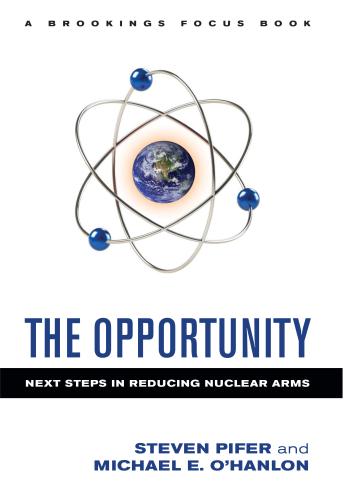
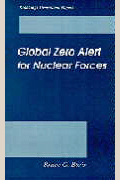
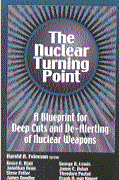
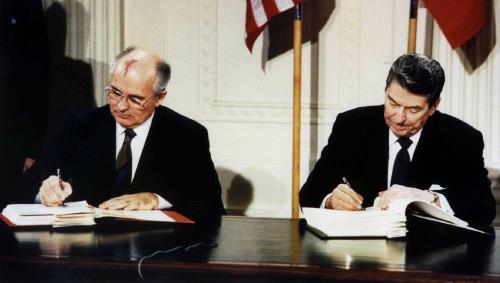
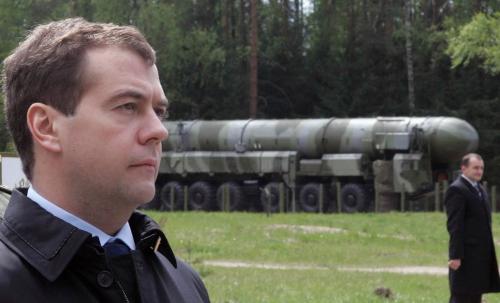



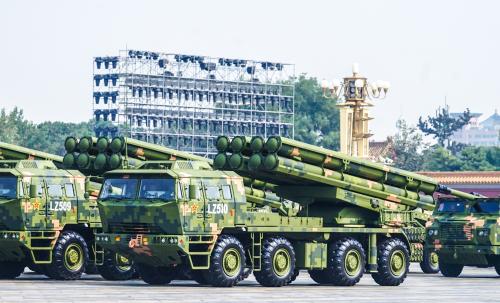
Commentary
Another arms race? No and nyet
February 20, 2018